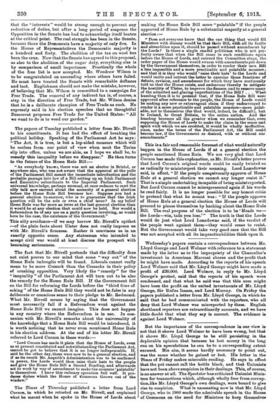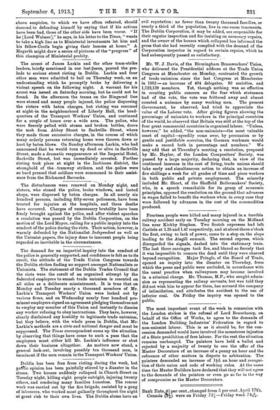But the importance of the correspondence in our view is
not that it shows Lord Wolmer to have been wrong, but that it shows Mr. Lloyd George to be still persisting in the deplorable opinion that because he lost money in the long run on his speculations he can be to a corresponding extent excused. His aim, it seems hardly necessary to point out, was the same whether he gained or lost. His letter in the Times of Friday makes miserable reading. He says in effect that the pot cannot call the kettle black, and that Unionists have not been above suspicion in their dealings. This, of course, is no answer at all. The Spectator has criticized Unionist Minis.: tees for transactions which, although wholly free from corrup- tion, like Mr. Lloyd George's own dealings, were bound to give rise to suspicion. What is nauseating now is that Mr. Lloyd George, who in 1900 made the admirable speech in the House of Commons on the need for Ministers to keep themselves
above suspicion, to which we have often referred, should descend to defending himself by saying that if his actions have been bad, those of the other side have been worse. "If he [Lord Wolmer]," he says, in his letter to the Times, " wants to take a high line as to Ministerial investments let him and his fellow-Cecils begin giving their lessons at home." A Hogarth might draw a series of pictures of the "progress" of this champion of Ministerial probity.







































 Previous page
Previous page